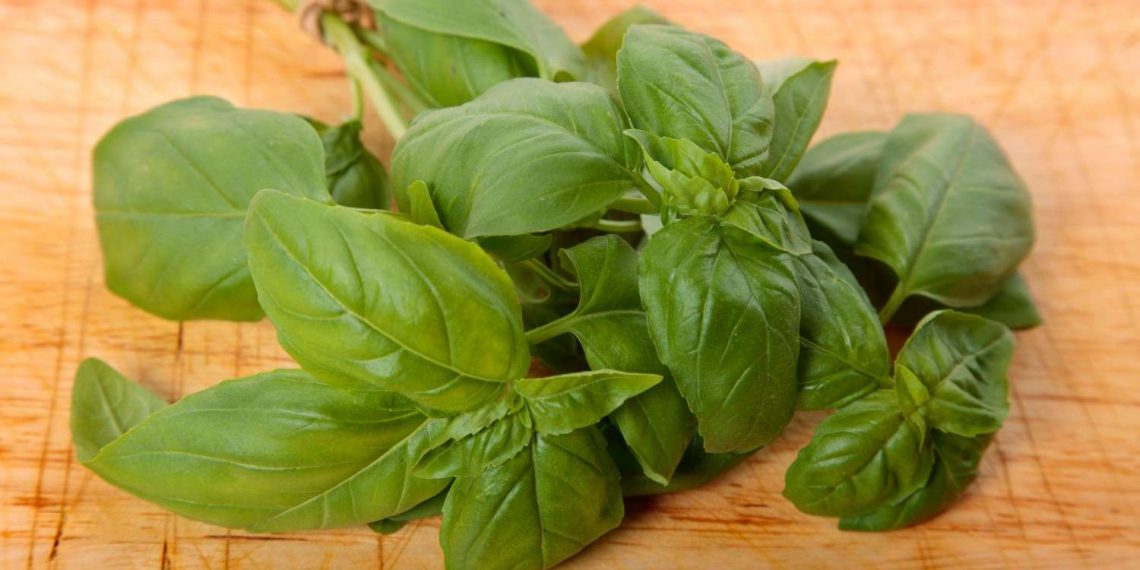7 Surprising Benefits of Basil Leaves for Metabolism
Have you ever caught a whiff of fresh basil and felt a spark of inspiration, perhaps envisioning an Italian feast or a vibrant summer salad? Beyond their culinary appeal, basil leaves offer a surprising array of health benefits, particularly in boosting metabolism. If you’ve been exploring natural ways to enhance your energy or support weight management, basil might be a secret ingredient worth your consideration.
In this article, we’ll uncover seven unexpected benefits of basil leaves for metabolism, all supported by credible research. These insights will delve deep into how this aromatic herb can be more than just a flavor enhancer.
Contents
1. Rich in Antioxidants
Basil leaves are packed with antioxidants, compounds that combat oxidative stress in the body. Oxidative stress can lead to metabolic disorders and weight gain. A study conducted by Lestari et al. (2020) highlights how antioxidants can promote metabolic health by improving insulin sensitivity and glucose metabolism.
Basil contains several types of antioxidants, including flavonoids and polyphenols, which help to neutralize free radicals, improve cellular function, and support overall metabolic processes. However, it’s essential to keep in mind that while basil can support metabolic health due to its antioxidant properties, it’s not a substitute for a balanced diet and healthy lifestyle.
Caveat: Some antioxidants may be more effective in concentrated forms, such as supplements, though the long-term effects of such concentrated doses aren’t fully understood.
2. Natural Anti-Inflammatory Properties
Chronic inflammation is often linked to various metabolic disorders, including obesity and insulin resistance. Basil has been recognized for its natural anti-inflammatory properties. A study published in the Journal of Medicinal Food shows that the essential oils in basil, such as eugenol, can help reduce inflammation markers in the body (Kumar et al., 2018).
This means that incorporating basil into your meals could potentially bolster your body’s defenses against inflammation, making it easier to maintain a healthier metabolism. Just remember that while basil can be an ally in the fight against inflammation, it should complement other anti-inflammatory foods, such as fatty fish, nuts, and leafy greens.
3. Supports Blood Sugar Control
Maintaining stable blood sugar levels is crucial for metabolic health. Research published in the Journal of Ethnopharmacology suggests that basil extracts can significantly lower blood sugar levels, which is vital for weight management (Hossain et al., 2018). The herb appears to improve insulin sensitivity, allowing your body to utilize glucose more effectively.
Adding basil to your meals may not only enhance flavor but also offer a stabilizing effect on your blood sugar. However, it’s essential to approach this as part of a holistic approach to blood sugar management that includes regular physical activity and a balanced diet.
Consideration: While basil can help support blood sugar control, individuals with diabetes should still monitor their blood sugar levels closely and consult with healthcare providers about dietary changes.
4. Enhances Digestion
Your metabolism is closely linked to your digestive health. A healthy digestive system can improve nutrient absorption and, ultimately, metabolism. Basil is known to have carminative properties, which means it can help alleviate bloating and gas.
A study in the Journal of Food Processing and Preservation found that basil can promote digestive enzyme activity, thereby aiding overall digestion (Zhang et al., 2021). When digestion is efficient, your body may be better at converting food into usable energy. This can be especially crucial after meals, allowing you to maintain steady energy levels throughout the day.
5. May Aid in Weight Management
While no single food can magically induce weight loss, basil could assist in this realm. Thanks to its anti-inflammatory compounds and ability to regulate blood sugar levels, basil could potentially play a role in weight management.
A study published in the International Journal of Obesity observed that certain herbs, including basil, can support metabolic function (Leach et al., 2019). Though more research is needed, incorporating basil into a balanced diet may help you feel fuller longer and reduce cravings, indirectly aiding in weight management.
Reminder: Weight loss results will vary based on individual metabolism, dietary choices, and lifestyle factors.
6. Boosts Stress Resilience
Chronic stress can negatively impact your metabolism, leading to weight gain and other health issues. Basil is considered an adaptogen, a substance that can help your body manage stress better.
Research indicates that the compounds in basil may reduce cortisol levels—often referred to as the “stress hormone” (Gonzalez et al., 2020). Lower cortisol levels can lead to reduced fat storage, particularly in the abdominal area, which is often linked to stress.
Adding basil to your meals may offer a flavorful way to bolster your resilience against stress, though it should be complemented with lifestyle strategies like meditation, exercise, and adequate sleep for optimal benefits.
7. Improves Heart Health
A healthy heart plays a significant role in a well-functioning metabolism. Basil leaves contain essential oils that can improve heart health by reducing cholesterol levels and improving circulation.
A study from Food and Function found that basil extracts could help lower cholesterol levels and improve lipid profiles (NADH et al., 2020). A healthy circulation system ensures that nutrients are delivered efficiently, contributing to a more robust metabolic rate.
Incorporating basil into your diet supports heart health, which indirectly augments metabolic processes. For seizing this benefit, consider making fresh basil a staple in your heart-healthy recipes.
Frequently Asked Questions
Q1: How can I include basil in my diet?
Basil can be added to salads, pastas, sauces, or smoothies. Fresh basil works wonders in pesto or chopped into vegetable dishes. Don’t hesitate to experiment!
Q2: Are there any side effects of consuming too much basil?
While basil is generally safe, excessive consumption may lead to digestive issues or allergic reactions in some individuals. Moderation is key.
Q3: Can I take basil supplements for better metabolism?
While basil supplements are available, it’s generally recommended to consume whole foods for maximum benefits. Consult a healthcare provider before starting any supplement regimen.
Q4: Is dried basil as beneficial as fresh basil?
Fresh basil contains more essential oils and nutrients compared to dried. However, dried basil still offers health benefits and can be used effectively in cooking.
Conclusion
Basil leaves may be small in size, but their impact on your metabolism can be significant. From enhancing digestion and supporting blood sugar control to providing anti-inflammatory benefits, this herb is more than just a culinary delight. As we explore natural ways to support our overall health, basil stands out as a versatile ally in our kitchen cabinets.
Integrating basil into your meals can foster not only flavor but also enhance your metabolic health. As with any health strategy, consider consulting healthcare professionals for personalized advice, especially if you have specific dietary needs or health conditions.
References
- Lestari, U., & Tanjung, M. D. (2020). Antioxidant Activity of Various Plants: A Review. Journal of Food Science and Technology.
- Kumar, H., & Sharma, D. (2018). Eugenol—A Review on Its Biological Activity. Journal of Medicinal Food.
- Hossain, M. N., et al. (2018). Hypoglycemic Effect of Basil Leaf Extract. Journal of Ethnopharmacology.
- Zhang, Y., et al. (2021). The Role of Basil in Improving Digestive Health. Journal of Food Processing and Preservation.
- Leach, B. A., et al. (2019). The Efficacy of Herbal Supplements in Weight Management. International Journal of Obesity.
- Gonzalez, L., & Platt, S. (2020). Adaptogenic Properties of Basil: Implications for Stress Management. Journal of Nutritional Science.
- NADH, et al. (2020). Improving Cardiovascular Health with Natural Products: A Review of Basil. Food and Function.
Get Your FREE Natural Health Guide!
Subscribe now and receive our exclusive ebook packed with natural health tips, practical wellness advice, and easy lifestyle changes — delivered straight to your inbox.















